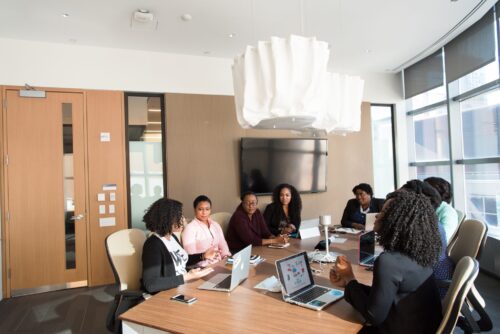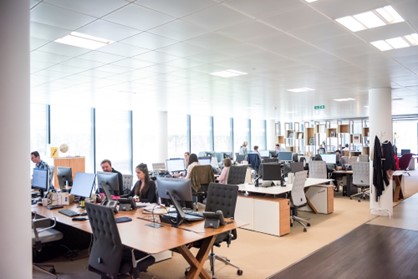Effective consultation plays a crucial role in health and safety representative training, ensuring that workers are equipped with the knowledge and skills to promote a safe and healthy work environment. In Brisbane, QLD, Australia, there is a legislative obligation to train Health and Safety Representatives (HSRs) in all states and territories. This training not only provides HSRs with the necessary tools to fulfill their role but also emphasizes the importance of effective consultation in achieving optimal health and safety outcomes. This includes HRSs participation in all stages of risk management process – risk identification, assessment, control and monitor. Consultation during a risk management process is compulsory in all states/territories.
Legislative obligation to train Health and Safety Representatives all States/Territories in Australia
In Australia, all states and territories have legislation that requires employers to provide training to Health and Safety Representatives if requested, except QLD which is a mandatory training. This training aims to empower HSRs with the knowledge and skills necessary to fulfill their role effectively. A key component of this training is understanding the importance of effective consultation. By ensuring that HSRs are trained in effective consultation techniques, organizations can promote a culture of safety and prevent workplace incidents. (The training is 5 days, entitlement is 1 days refresher every year).
Health and Safety Representatives Powers and Role
Health and Safety Representatives play a vital role in promoting and maintaining a safe and healthy work environment. They have the power to identify and address potential hazards, consult with workers and management, and make recommendations to improve health and safety practices. Effective consultation enables HSRs to leverage their powers and fulfill their role more effectively. By involving workers in decision-making processes, HSRs can gather valuable insights, identify potential risks, and implement appropriate control measures.
Understanding the role of consultation in risk identification
One of the key benefits of effective consultation in health and safety representative training is its role in risk identification. By consulting with workers, HSRs can tap into their frontline knowledge and experience, enabling them to identify potential risks that may otherwise go unnoticed. This collaborative approach to risk identification enhances the accuracy and comprehensiveness of hazard assessments, ensuring that all potential risks are identified and addressed.
The benefits of consultation in risk monitoring and mitigation
Effective consultation also plays a critical role in risk monitoring and mitigation. By regularly consulting with workers, HSRs can stay informed about any changes in the work environment and identify emerging risks. This proactive approach allows for early intervention and the implementation of appropriate control measures to mitigate risks. Regular consultation also provides an opportunity to review the effectiveness of existing controls and make necessary adjustments to ensure ongoing safety.
Promoting WHS awareness through effective consultation
Another key benefit of effective consultation in health and safety representative training is its ability to promote Work Health and Safety (WHS) awareness. By involving workers in decision-making processes and encouraging open communication, organizations can foster a culture of safety. This increased awareness empowers workers to proactively identify hazards, report incidents, and contribute to the continuous improvement of health and safety practices.
The role of employee participation in consultation
Employee participation is integral to effective consultation. When workers are actively involved in decision-making processes, their ownership and commitment to health and safety initiatives increase. This participation fosters a sense of responsibility and shared accountability for maintaining a safe work environment. By valuing and incorporating the input of workers, organizations can harness the collective knowledge and expertise of their workforce, leading to more effective risk management strategies.
Strategies for implementing effective consultation in health and safety representative training
Implementing effective consultation requires a systematic approach that encompasses training programs, resources, and best practices. Organizations can adopt the following strategies to ensure that consultation is embedded in health and safety representative training:
Implementing effective consultation
Organizations should establish clear mechanisms and processes for consultation. This includes defining roles and responsibilities, providing training on effective consultation techniques, and creating channels for open and transparent communication. By setting the foundation for effective consultation, organizations can foster a culture of collaboration and engagement.
Training programs and resources for developing effective consultation skills
To facilitate effective consultation, organizations should invest in training programs and resources that equip HSRs with the necessary skills. These programs should cover topics such as active listening, effective communication, conflict resolution, and negotiation. By enhancing the consultation skills of HSRs, organizations can ensure meaningful and productive discussions that lead to improved health and safety outcomes.
Best practices for maintaining ongoing consultation in the workplace
Maintaining ongoing consultation requires a commitment to continuous improvement. Organizations should establish feedback mechanisms to assess the effectiveness of consultation processes and make necessary adjustments. Regular communication, engagement initiatives, and recognition of worker contributions can also help sustain a culture of consultation in the workplace.
Conclusion: The impact of effective consultation on health and safety outcomes
Effective consultation is a fundamental component of health and safety representative training Brisbane, QLD, Australia. By involving workers in decision-making processes, organizations can tap into their knowledge and experience, identify potential risks, and implement appropriate control measures. This collaborative approach not only enhances risk identification and mitigation but also promotes WHS awareness and fosters a culture of safety. By implementing strategies for effective consultation, organizations can ensure that health and safety representatives are equipped with the necessary skills to drive positive health and safety outcomes in the workplace.












